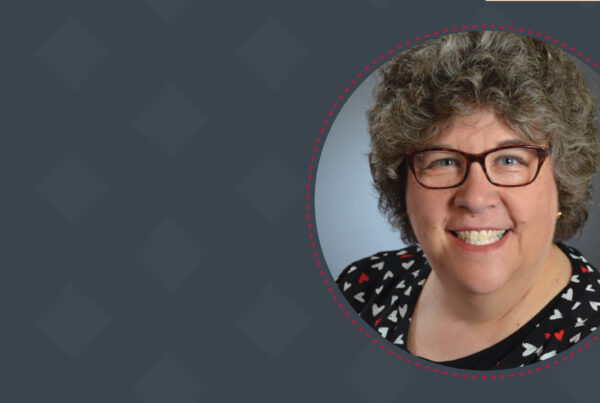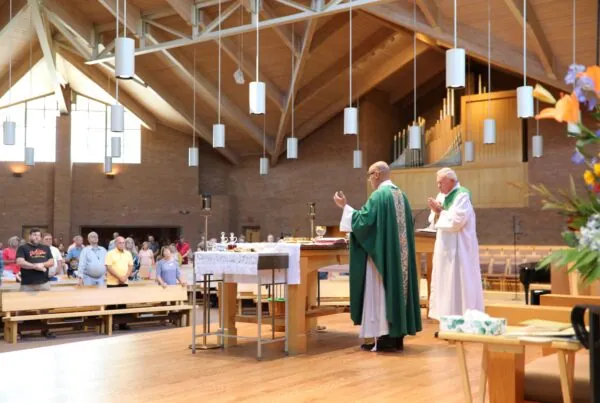Considering a capital campaign? First, complete a feasibility (campaign planning) study. Every. Single. Time!
The title of this month’s Steier Tips may generate some questions. Why invest in a study if we know we must do a campaign? We have already surveyed our supporters and know they like our plan; is a study really necessary?
Those are fair questions, but modern studies accomplish so much more than testing the feasibility of your project – when done the right way. Studies have evolved over the years, so much so that the Steier Group does not call them “feasibility studies” anymore. They are campaign planning studies. And they are a vital step in setting up your future fundraising for success.
What are the benefits of a modern planning study?
Begin to tell your story: Compelling storytelling is the most important part of successful fundraising. What are your needs? What is your vision? How will this impact the people and causes served by your organization? In many cases, the study is the first chapter of that story. And the feedback you receive will help refine and shape your story before it is presented again during the campaign.
Educate and cultivate: Begin to educate donors on the needs facing your organization and how a campaign can meet those needs. You develop and strengthen relationships with constituents by inviting them to be a part of your planning process. That’s an important message of the study – “your feedback will help shape our plan.” When their opinions and insights feel valued, supporters are more invested in the outcome.
The study also educates by establishing ground rules for campaign giving. Put simply, a campaign donation/pledge must be extraordinary above and beyond regular giving – like offertory, annual appeals, galas, other fundraising initiatives/events, etc. Donors can’t scale back on their existing generosity by redirecting that support to a campaign. The study plants the seed for that important mindset.
Eliminate the guesswork / Listen and learn: Hearing the answers to important questions straight from your donors is vital.
- What are hot button issues that you may or may not be aware of?
- How do donors prioritize the different needs/projects you are testing during the study?
- Who will be the leaders and volunteers in your campaign?
- Who are your lead donors and what are their priorities? Are they motivated by matching/participation challenges and naming opportunities?
- What is the best way to communicate with prospective donors?
- How do donors want to be approached for support?
- How is the economy or an upcoming election or a competing campaign in your area going to impact your fundraising?
You can guess how people might respond. Why guess when you can ask the questions, secure valuable feedback and then customize your communications, appeal, leadership and other fundraising strategies with that feedback in mind? Cookie cutter fundraising may not need a study. But if you want to customize an eventual campaign for your unique community, the study is vital. It is the mechanism by which you obtain the foundational information needed to create your customized plan.
Promote planned giving: This is a focal point of all Steier Group studies and campaigns. There is a historic transfer of wealth happening in society. Nonprofits should be focusing on planned giving much more than they are. We try to help our partners improve in this area. It starts during the study when we ask the question about existing legacy support to your organization. And then, we ask who would be interested in learning more about planned giving. Armed with that information, once the campaign begins, we include strategies for “dual asks” – where we ask a donor to support the campaign but also consider formalizing legacy support for long-term sustainability. It all starts during the study and ends with a stronger planned giving program.
Expand outreach: There is no limit on who you can invite to participate in a study. With electronic surveys, QR codes and Zoom meetings, connecting with potential supporters has become much simpler.
- Are local businesses interested in supporting you?
- Are there area foundations whose philanthropic interests might align with your vision?
- Can your vendors be counted on for some support?
- Have former longtime parishioners or supporters moved out of the area, but may still have a place in their hearts for your organization?
Let’s reach out to them! It is inexpensive and can lead to more support for your campaign.
Validate the need and support: Leadership has spent a lot of time establishing the vision and identifying the goals. A study is an important step in showing that the community is supportive before fundraising begins. And if the feedback is shaky, you can make minor adjustments that show you listed and adjusted.
Establish a realistic fundraising projection: The “feasibility” component still remains important in a modern study. “How much can you raise?” must be answered. Typically, the Steier Group encourages our partners to dream big during the study. Within reason, of course. If a parish of 300 families and a $500,000 offertory has a $25 million goal, that can be problematic. But it’s okay to test projects ambitiously to see how big of a bite of that apple you can take.
Puts you in a position to make informed decisions: Your organization may have needs requiring $5 million in funding. The study shows that while your donors love the plan, you can likely only raise $3.5 million to $4 million. Is there disappointment? Perhaps. But it’s still valuable to know your capacity so leadership can make informed choices. Having that projection allows you to tier the goals and celebrate successes along the way. You can also make smarter choices about scaling back goals, phasing out projects over a longer period of time, securing financing, etc.
Other stuff: You can include many other questions with other desired outcomes in mind during a study. You can ask questions unrelated to fundraising to learn more about your supporters and their view of your organization. What additional ministries would they like to see? How would they like to become more involved? Are they interested in serving in other leadership or volunteer roles? What other projects are they interested in seeing down the road? <insert something you’d like to learn about your supporters here?>
A few other tips if your organization is considering a future study and campaign:
- Obtain consensus on your plan. As a leadership team, determine what is best for your organization. Try to obtain consensus on that plan, from leadership, so everyone is on the same page as the vision is later presented to your community of supporters.
- Don’t end up with an “either/or” situation. For example, “Leadership has decided we are going to either build new or renovate an existing building. Now, we want to take it to our community to decide.” That’s a mistake. If 60% vote for “build new,” and you go with that plan – 40% of potential supporters just had their opinion rejected. Leadership needs to confidently present the plan they believe is best.
- Update/strengthen your database. The Steier Group is great at helping our partners with this once engaged, but getting a jumpstart on it will put you in a better position. Accurate contact information is critical. Any legwork you can do before a planning study will benefit your fundraising down the road.
- Communicate. Embrace the 8:1 rule of communications in your development activities. For every letter, text or email asking for something, there should be at least eight communications educating, thanking or inspiring your supporters. Show the impact of past gifts. Show your vision for the future, without asking for anything … yet.
- Dream big. Be bold. It’s okay to present an ambitious plan to your community, and scale it back based on the results of a future study. You don’t lose credibility; you gain it because your supporters see that the study was a productive exercise and you are not acting irresponsibly. Plus, you show you are forward thinking, have a vision and now you have a roadmap to accomplish it.
Conducting a planning study before a capital campaign is not merely a recommended step — it is an essential one.





